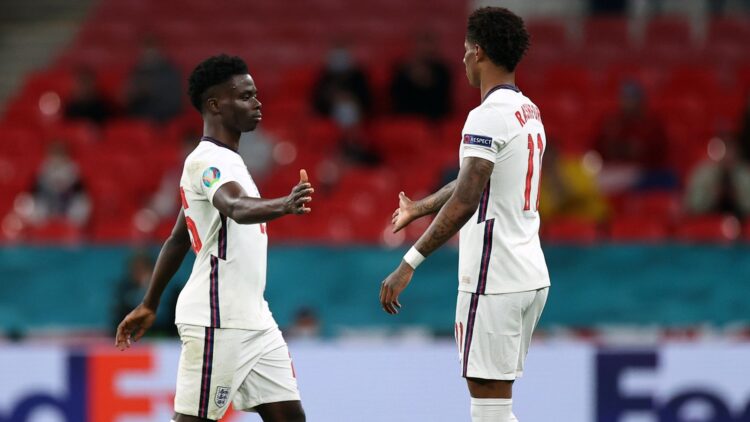Over 55 per cent of the players who played in Euro 2020 and AFCON finals were abused online before, during and after the game, according to the studies of a report released by FIFA & FIFPRO on Saturday; homophobic slurs were most common form of detected abuse, with racism second
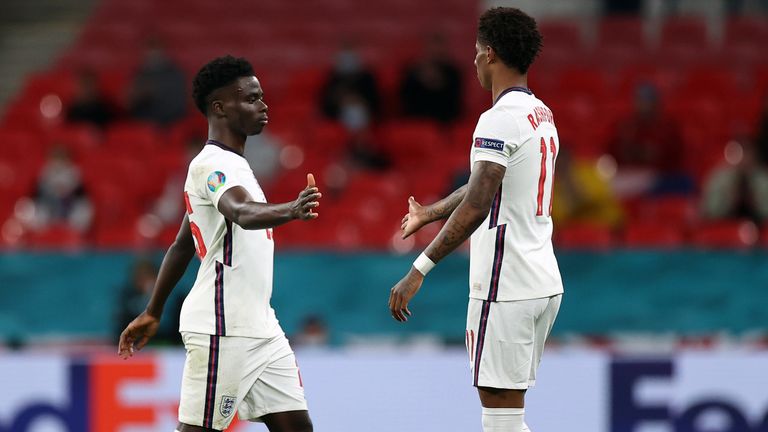
Homophobic abuse was the most common, with racism second, and though world football’s governing body are not naming names, Sky Sports News understands the most abused players in the Euro 2020 final were Arsenal’s Bukayo Saka and Manchester United’s Marcus Rashford, who both missed from the spot as England lost to Italy on penalties at Wembley last July.
In both tournaments, most of the abuse originated from the home nation of the players being targeted – 38 per cent from the UK and 19 per cent from Egypt after they were also beaten on penalties by Senegal in February’s AFCON final.
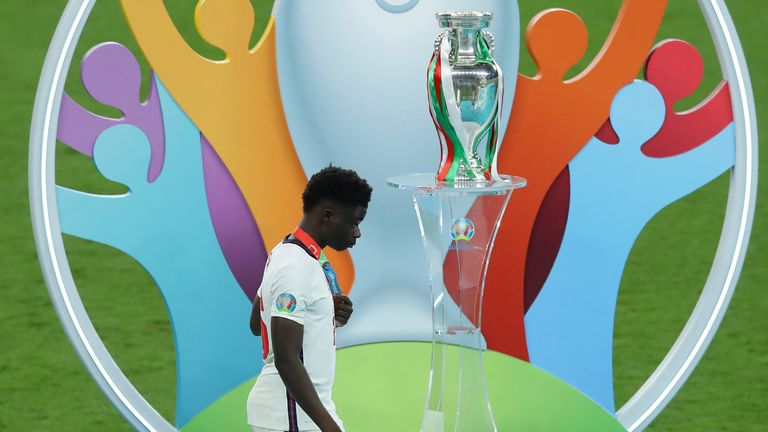
In response, FIFA and FIFPRO, the worldwide representative organisation for professional footballers, say they will launch a dedicated in-tournament moderation service across men’s and women’s football during this winter’s World Cup “that will scan recognised hate speech terms published to identified social media accounts, and once detected, prevent that comment from being seen by the recipient and their followers.”
FIFA president Gianni Infantino said: “Our duty is to protect football, and that starts with the players who bring so much joy and happiness to all of us by their exploits on the field of play.
“Unfortunately, there is a trend developing where a percentage of posts on social media channels directed towards players, coaches, match officials and the teams themselves is not acceptable, and this form of discrimination – like any form of discrimination – has no place in football.
Summary of report’s findings
- Over 55 per cent of players in both Euro 2020 and AFCON 2022 finals received some form of discriminatory abuse
- Homophobic slurs most common form of detected abuse, with racism second
- Black players who missed penalties (England) were the most abused players in the Euro 2020 Final / a substitute (Egypt) was the most abused player at AFCON 2022 finals
- Majority of abuse originated from the targeted players’ home nation
- Club identity is a trigger for abuse. i.e. Liverpool players received abuse on Twitter from fans who are supporters of Liverpool’s Premier League rivals
“With the FIFA World Cup Qatar 2022 and FIFA World Cup Australia and New Zealand 2023 on the horizon, FIFA and FIFPRO recognise it is important to make a stand and to include what is monitored on social media with what is already being monitored in the stadiums.
“We want our actions to speak louder than our words and that is why we are taking concrete measures to tackle the problem directly.”
Homophobic slurs were the most common form of detected abuse (40 per cent), with racism second (38 per cent), and the majority of it remains visible.
Anti-black racism made up 76 per cent of abuse in the Euro 2020 final. But prior to the penalties, racist abuse had been relatively low, with homophobia more prevalent before and during the game.
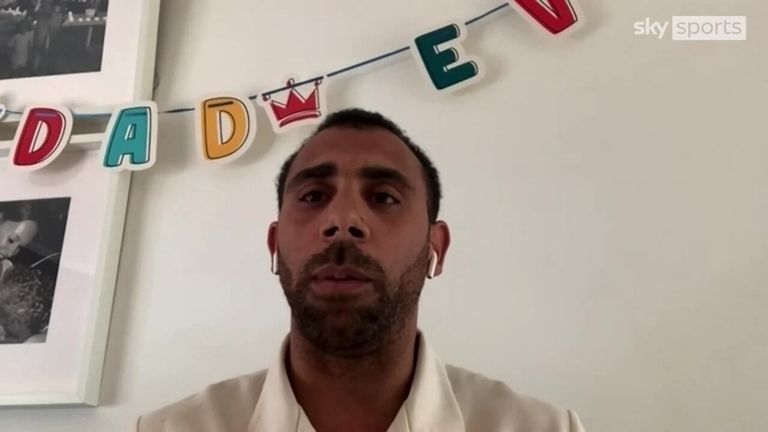
The report, which used artificial intelligence to track more than 400,000 posts on social media platforms during the semi-finals and finals stage of Euro 2020, states that this has been observed in other studies across several sports. It says: “Racism often picks its moment and is unleashed after a trigger. This means that a tournament or match with relatively low abuse levels can become a flashpoint at any moment.”
Islamophobia was more prevalent surrounding the AFCON Final with 33 instances.
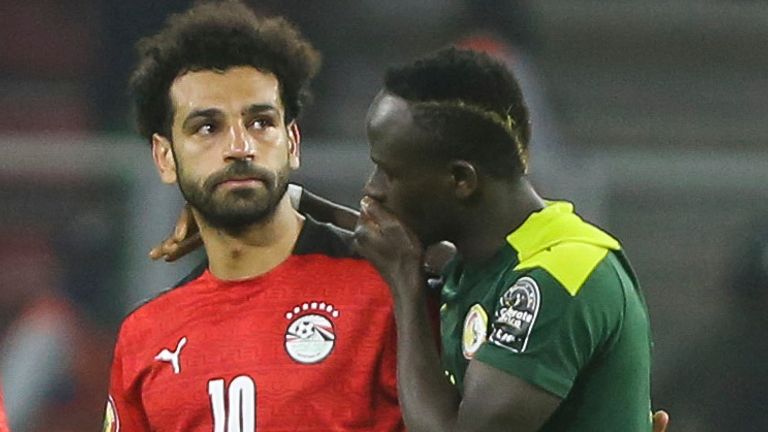
The independent report, published on Saturday to coincide with the United Nations International Day for Countering Hate Speech, also suggests the holders of 90 per cent of the accounts responsible are identifiable and therefore their actions could be elevated to the social media platforms and police.
FIFPRO President David Aganzo said: “Online abuse is a societal issue and as an industry, we cannot accept that this new form of abuse and discrimination affects so many people including our players.”
Under the initiative, FIFA and FIFPRO will also provide educational support and mental health advice to players during major tournaments.
Sky Sports News has contacted Twitter and Meta – the parent company of Facebook & Instagram – for comment.
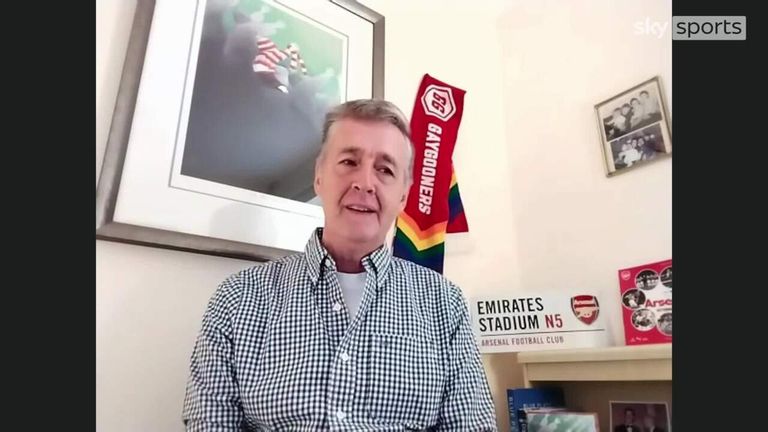
‘The report is sad, but not surprising’
Former England footballer Lianne Sanderson speaking on Sky Sports News:
“This doesn’t surprise me, for someone like me who get abused on a regular basis. It has got better but if a day goes by and I don’t get abused, I’m absolutely buzzing.
“During the Euros final with Saka, Sancho and Rashford, they’re English until they miss a penalty. So the report makes me sad, but it doesn’t surprise me with the racism and homophobia. It’s always been there, but now it’s more prevalent for some reason. But we keep pushing, fighting the good fight and we keep talking about it.
“Thankfully, I think people do realise that their words are quite harmful. If you look at the Premier League this season, you’re always going to get people tweeting or messaging on Instagram. Unfortunately, it’s 2022 and those social media companies don’t do enough to stop that from happening.
“It needs to be better and more protective for people like me and everybody who receives abuse like this. It’s like somebody having your telephone number and you can’t unsee something.”
Hate won’t win
Sky Sports is committed to making skysports.com and our channels on social media platforms a place for comment and debate that is free of abuse, hate and profanity.
For more information, please visit: www.skysports.com/againstonlinehate
If you see a reply to Sky Sports posts and/or content with an expression of hate on the basis of race, sex, colour, gender, nationality, ethnicity, disability, religion, sexuality, age or class, please copy the URL to the hateful post and screengrab it and email us here.
